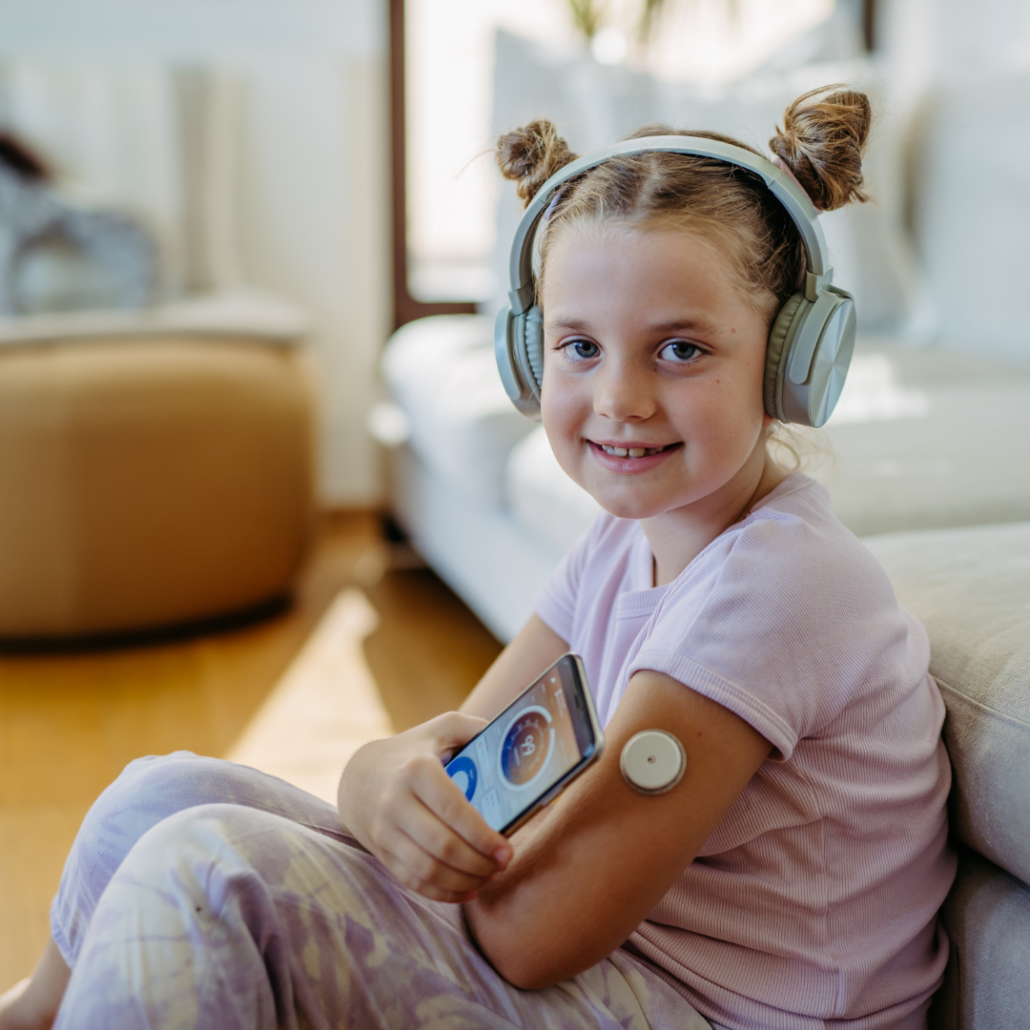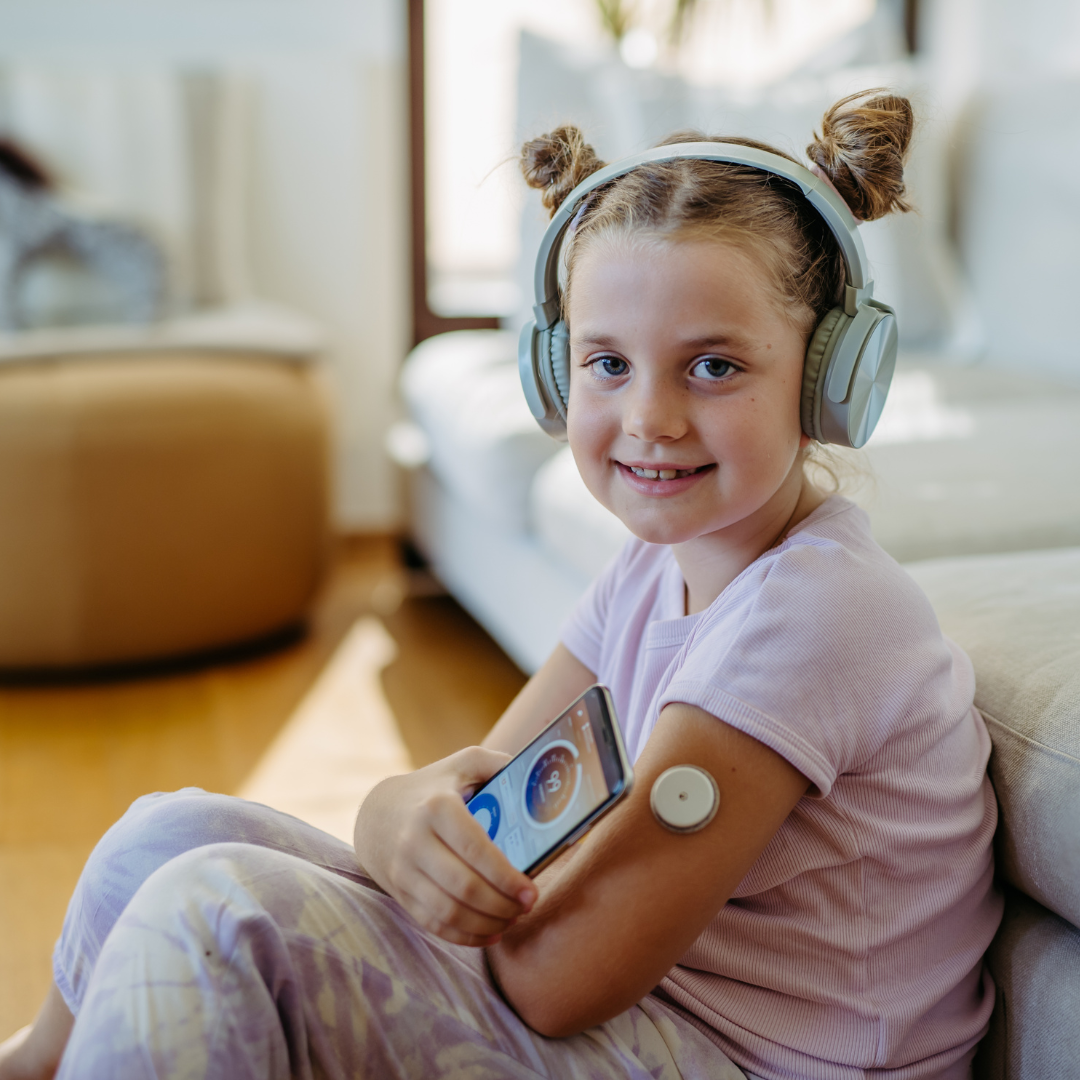Remote Type 1 Diabetes Research Study
Researchers at Washington University School of Medicine are studying how glucose levels throughout the day impact the cognition of youth with Type 1 Diabetes.

Fast Facts

Have a Child Ages 9-16

Have had Type 1 Diabetes for at Least 1 Year

Compensation Provided

Conducted in St. Louis, MO (Remote if participant already uses a Dexcom CGM)
Study Background
The purpose of this study is to learn if changes in glucose throughout the day are related to the way youth think (‘cognition’) in their day-to-day lives.
To answer this question, youth with Type 1 Diabetes will be asked to complete short game-like cognitive tasks on a smartphone 4 times per day for 10 days in a row and will be asked to wear a continuous glucose monitor (CGM) to measure glucose.
Youth 13 years old or older will also wear a Fitbit to measure sleep and physical activity. Youth and their parent will meet with the research team at the beginning of the study to get set up.

Study Background
The purpose of this study is to learn if changes in glucose throughout the day are related to the way youth think (‘cognition’) in their day-to-day lives.

To answer this question, youth with Type 1 Diabetes will be asked to complete short game-like cognitive tasks on a smartphone 4 times per day for 10 days in a row and will be asked to wear a continuous glucose monitor (CGM) to measure glucose.
Youth 13 years old or older will also wear a Fitbit to measure sleep and physical activity. Youth and their parent will meet with the research team at the beginning of the study to get set up.

Additional Information
Researchers want to know if changes in glucose throughout the day impact how youth with Type 1 Diabetes think.
You and your child may qualify for this study if the following criteria are met.
Inclusion Criteria:
- Ages 9-16
- Have had Type 1 Diabetes for at least 1 year
- Currently wear a Dexcom Continuous Glucose Monitor (CGM) (or if living in St. Louis, must be willing to wear one)
- Do not have a neurological disorder, learning disability, or take a medicine that affects the brain
- Speak fluent English
Once enrolled, this study involves:
- At the beginning of the study, youth with Type 1 Diabetes and their parent will have an ‘Introductory Session’ with the research team to get set up for the study.
- If the participant already uses a Dexcom CGM, this visit will be done virtually (via Zoom).
- If the participant does not already use a Dexcom CGM, and lives in the St. Louis area, they will complete the Introductory Session in person at Washington University in St. Louis.
- Starting the day after the Introductory Session, youth will complete cognitive tasks on a smartphone 4 times per day for 10 days in a row in their daily lives (i.e., remote participation).
Compensation is provided up to $110 for your participation.
- Participants will be paid $25 for participating in the Introductory Session on Zoom or $40 for participating in the Introductory Session in person at Washington University.
- They will then be paid $5 per day over the course of the 10 days for a potential total of $50, but they will only receive the money for that day if they complete at least 3 of the 4 cognitive tests.
- Participants will also be given incentives for completing tests to increase testing compliance. Participants will receive an additional $0.50 per test for a total of $20.
There is no cost for you to participate in our research study.
How BuildClinical Works
Our Mission
BuildClinical aims to support clinical research by connecting individuals with clinical research opportunities that match their unique needs and medical history.
Our Collaborations
We work with renowned universities and trusted institutions across the United States to promote research studies. These collaborations ensure that individuals can have access to research that may advance medical knowledge and improve health outcomes.
Your Role
By signing up, you may contribute to the advancement of medical research. If you meet the study criteria, you will be contacted by the research team directly to assess your participation in the research study.

